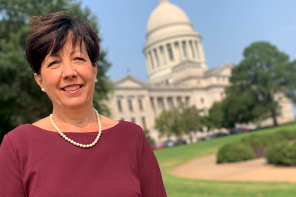Creationists are sooooo predictable. Way back on Jan. 5, I wrote:
2011 will be the year that the phrase “supplemental materials” will emerge at the forefront of the creationism battles. Over the past several years, recommendations that supplemental materials be introduced in public school science classrooms have been part of anti-evolution bills in states across the country as a way to sneak creationist literature into the curriculum. Because they are not subject to the same formal adoption process as official textbooks, supplemental materials used in local school districts could rely on some seriously dubious source matter. (Discovery Institute material, perhaps?) Expect the battles over this issue to take place in Texas and Louisiana.
Well, last week, the Foundation for Thought and Ethics appeared on a list of publishers who plan to submit supplementary materials for review this spring by the Texas Board of Education for its science curriculum.
So what is the Foundation for Thought and Ethics? The same folks who published Pandas and People, the intelligent design textbook that was featured so prominently in the trial of Kitzmiller v. Dover five years ago. These were the same folks, who in 1987, had been working on a creation science version of Pandas when the U.S. Supreme Court ruled that creation science was a religious notion and had no business in public school science class. So, realizing that Pandas’ marketability had just taken a nose dive right into the toilet, FTE editors quickly went through the manuscript with a search-and-replace word processor option, taking out “creation science” and replacing it with “intelligent design”. Really. That’s all they did.
But when the Kitzmiller legal team went through the earlier creation science version of Pandas and compared it to the intelligent design one, they noticed that other than those small wording changes, practically nothing else had been altered. However, they caught a slip-up. In one instance, editors had meant to replace “creationists” with “design proponents.” Instead, the phrase read, “cdesign proponentsists.”
Lawyers dubbed it proof of creationists’ “missing link”.
It also came out during a pre-trial hearing of the Dover case that FTE described its mission on IRS tax returns as “promoting and publishing textbooks presenting a Christian perspective of academic studies,” a fact that President Jon Buell, while testifying under oath, denied until he was presented with the actual IRS return. Buell called it a mistake and blamed it on his accountant, even though his own signature appeared on the return.
But apparently FTE wasn’t humiliated enough in the courtroom and wants another shot at getting its thinly-veiled creationist textbooks into public school, this time in its home state.
The reason why this is even be possible is that the provision that permits “supplemental materials” in Texas is more flexible than for textbooks. Rather than meet all the new standards, the material only has to address some of them. Additionally, the materials aren’t purchased by the state, as with textbooks in Texas. Instead, materials approved by the board may be bought by local school districts. Former board member and young earth creationist Don McLeroy made clear the provision’s intent when he said that allowing supplemental materials is one of his proudest achievements.
Unfortunately, according to the Texas Freedom Network, the actual materials submitted for approval by FTE and other publishers will not be available to the public until March. There will be a public hearing on these materials at the board in April and you can rest assured that I will be following it all. So stay tuned.




